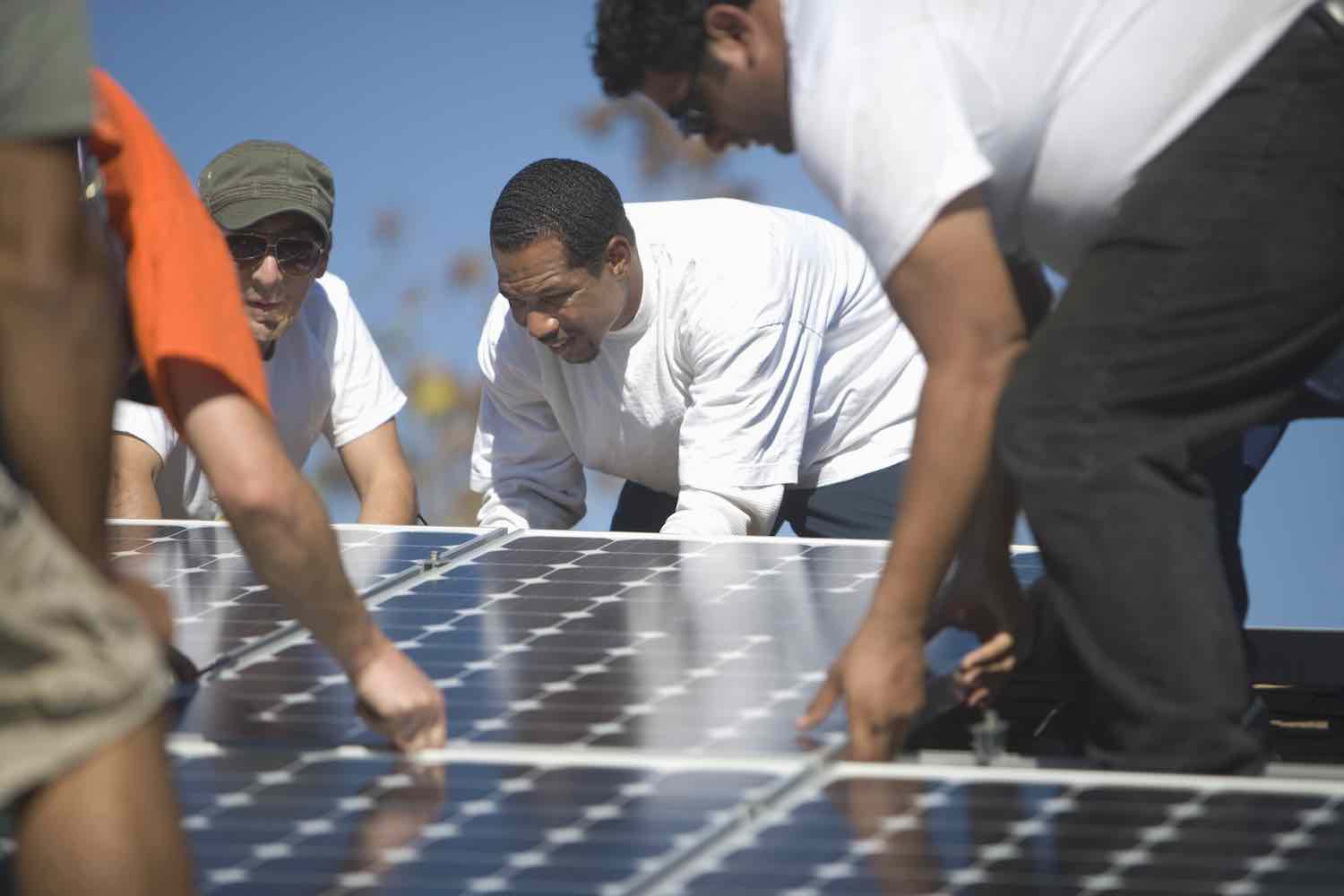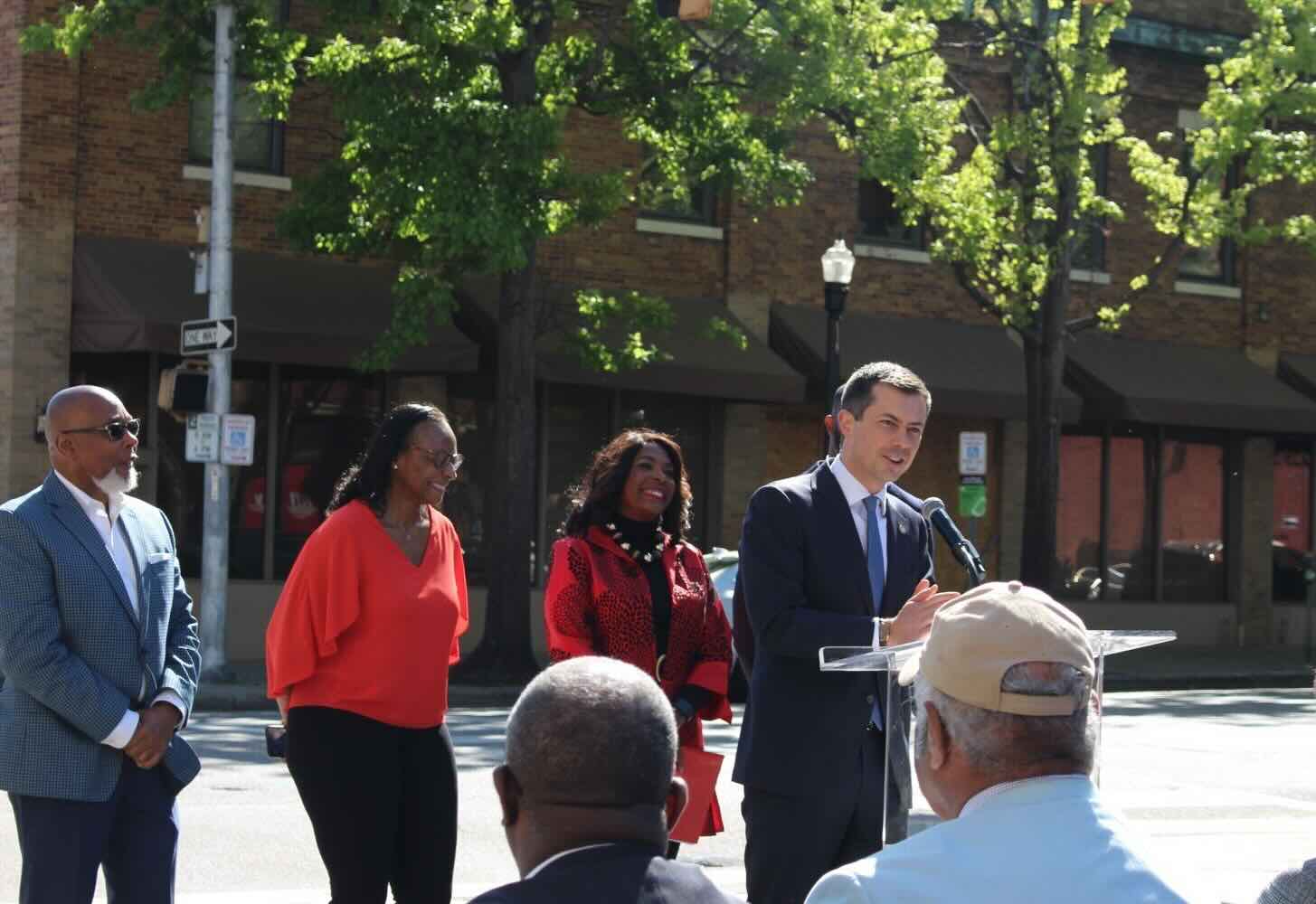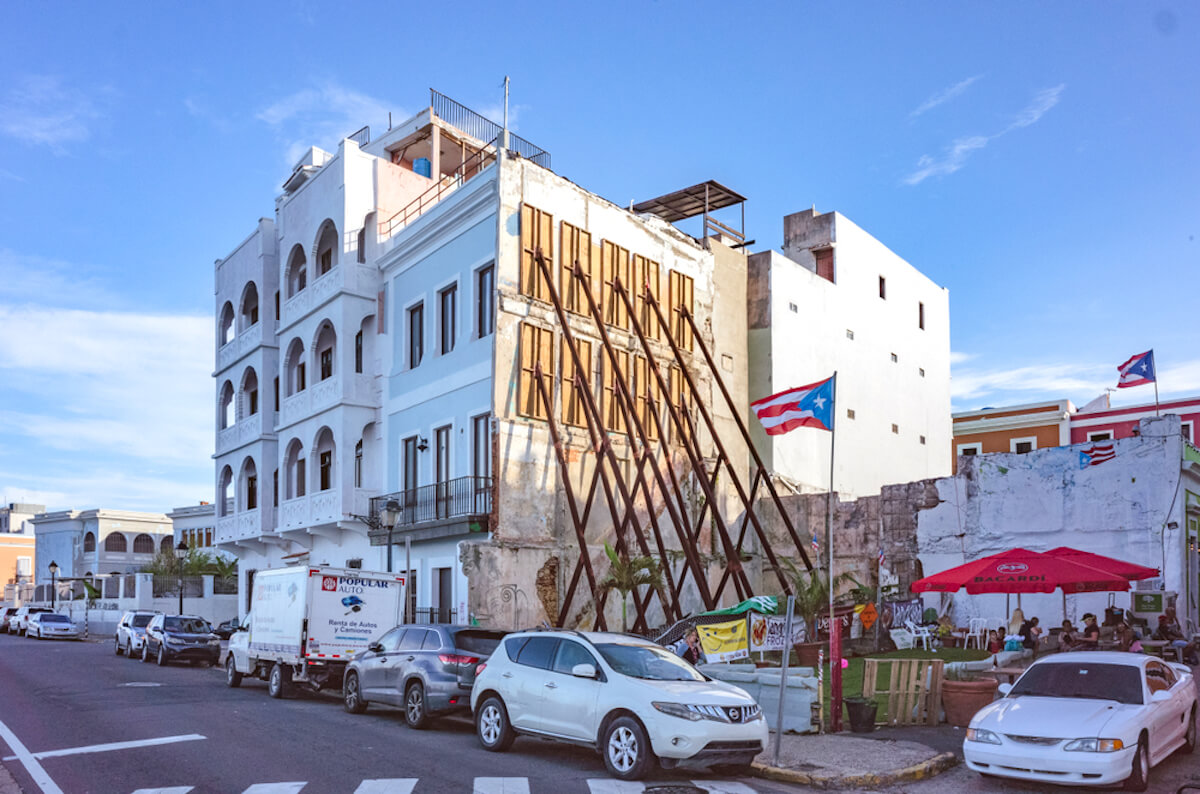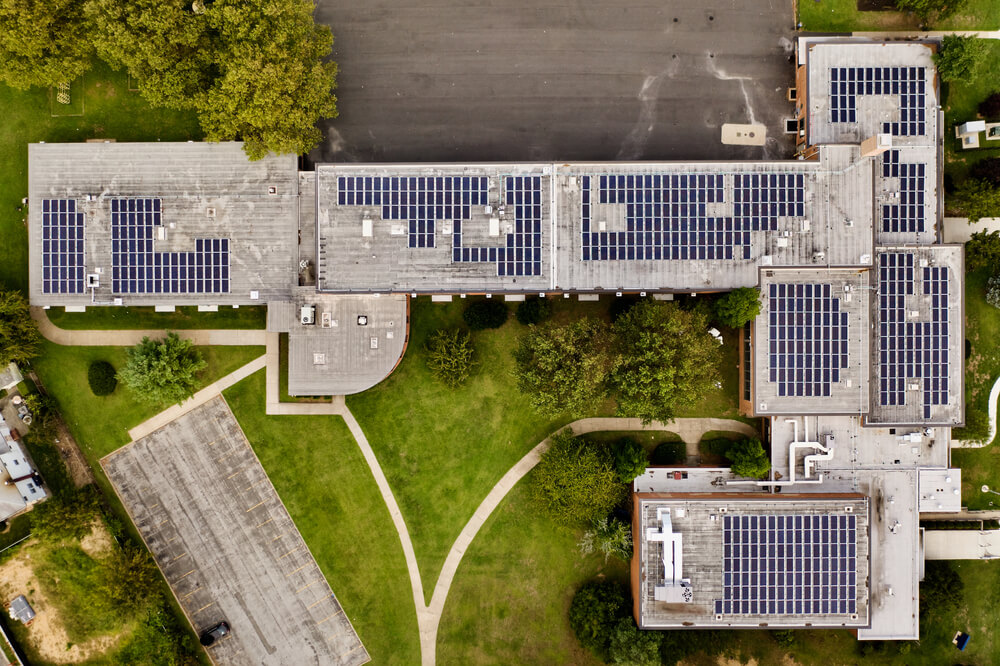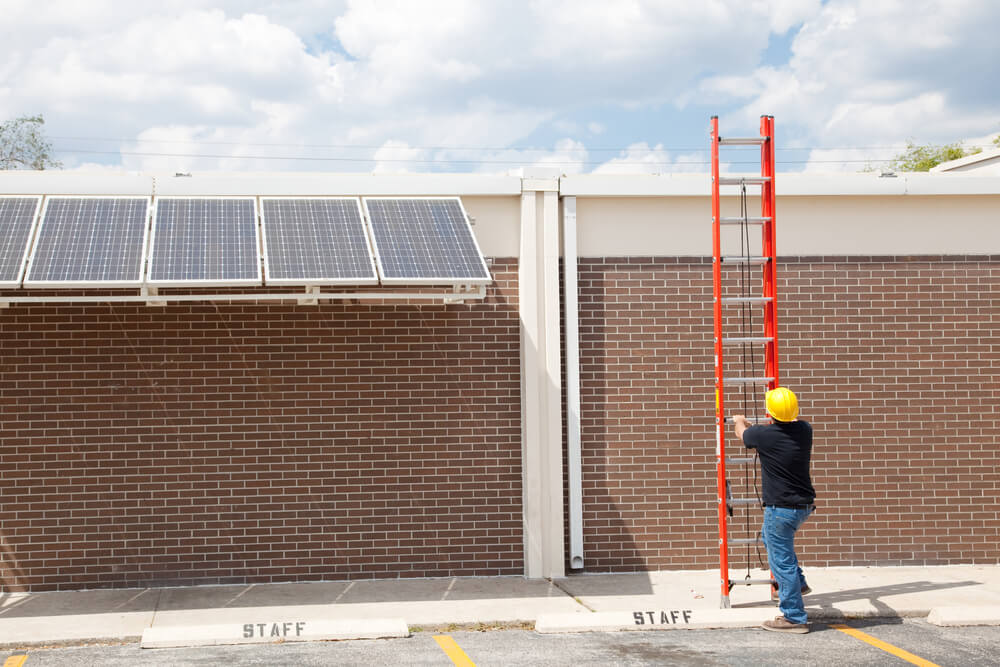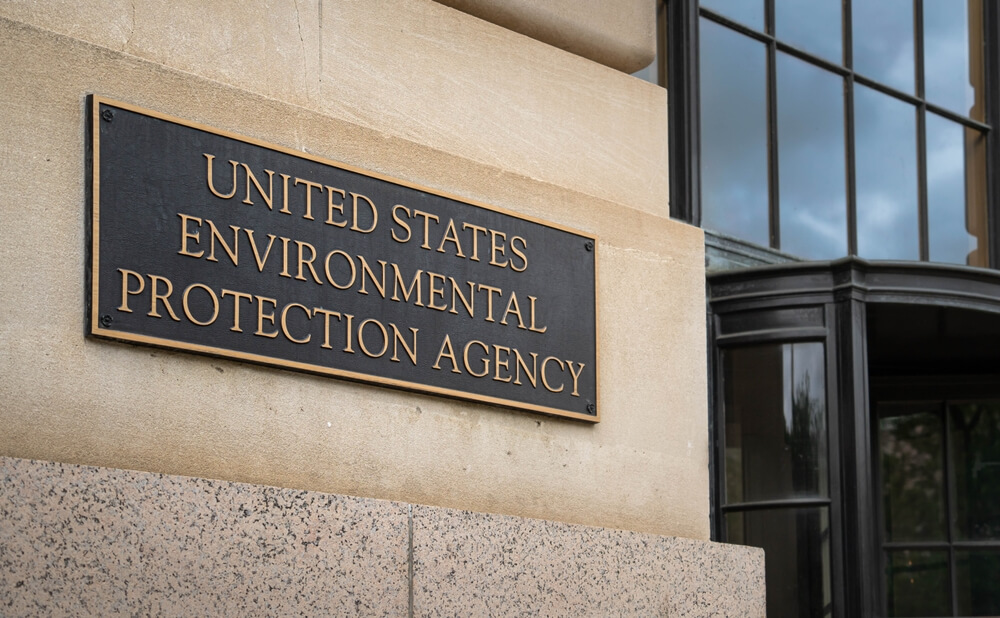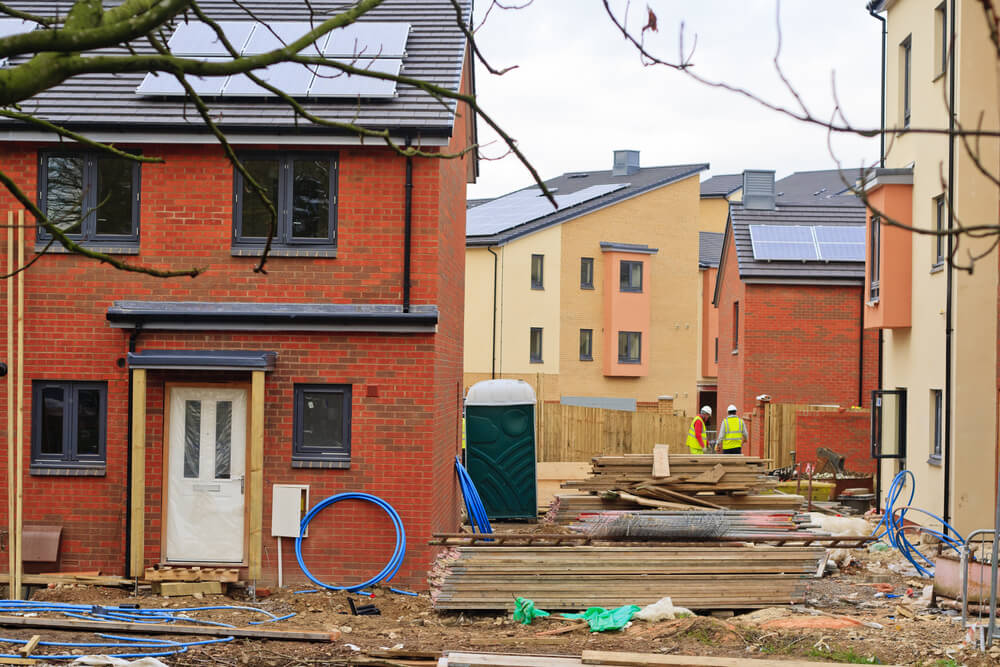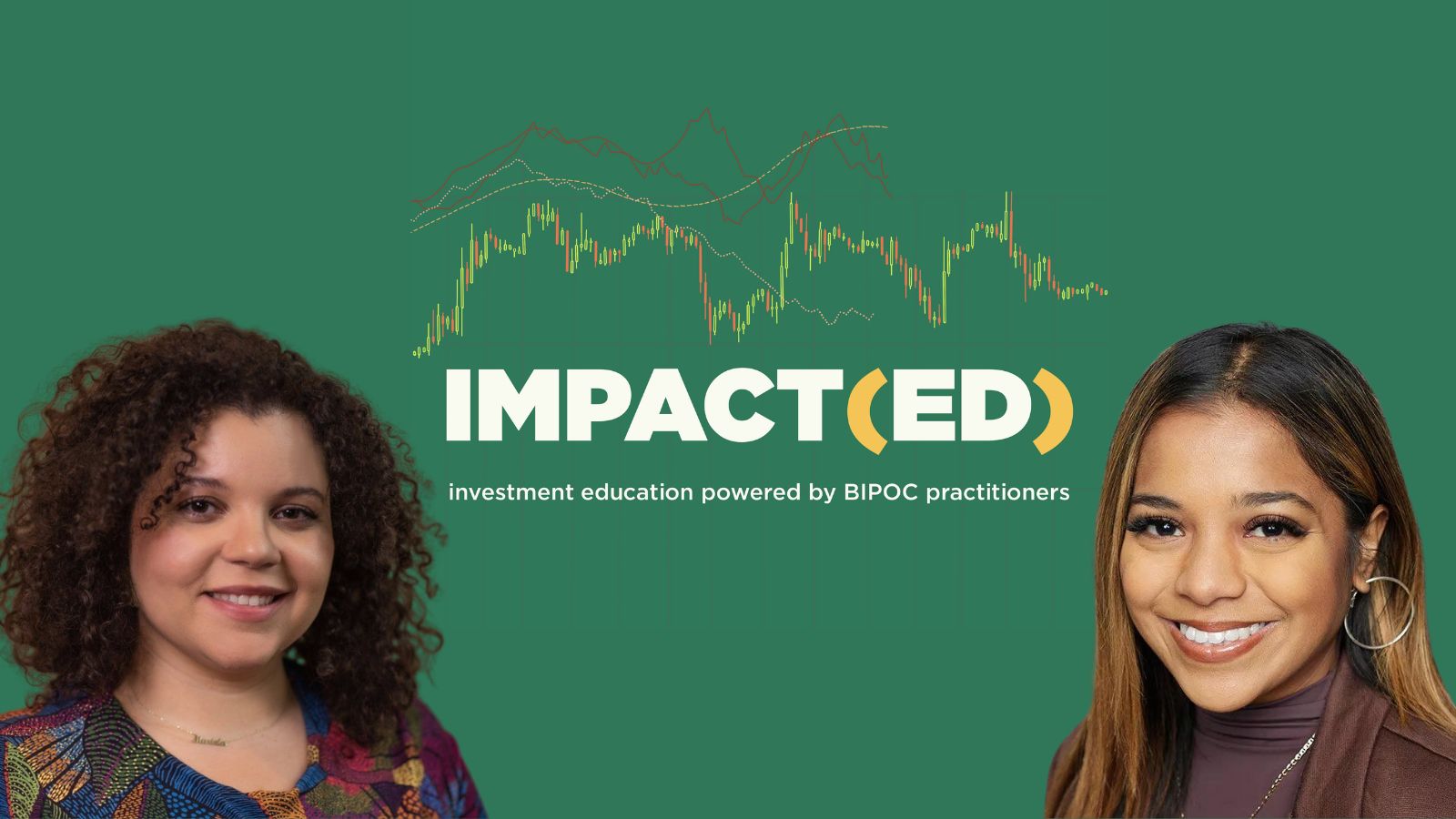ImpactAlpha, Jan. 13 – The race is on to install solar panels, lay in chargers for electric vehicles and retrofit housing for energy efficiency – not just in wealthy neighborhoods, but in low and middle-income communities that for decades have borne the brunt of pollution and disinvestment.
The latest entrant: Reactivate, a joint venture between Lafayette Square, the ambitious new impact asset manager, and Invenergy, one of the largest solar and wind project developers. The partnership is looking to invest half a billion dollars in dozens of community solar projects in the next two years alone.
“By developing these projects specifically serving low-to-moderate income areas, we can not only catalyze renewable energy efforts in untapped markets, but provide energy cost savings, create jobs, and generate property tax revenue for local governments,” Lafayette Square’s Damien Dwin told ImpactAlpha.
“These projects are difficult to finance unless you can do it at scale. We built the Reactivate platform to allow us to finance on multiple projects efficiently.”
Other investors are eyeing the same opportunity. Last week, New Orleans-based Posigen, secured $100 million in financing from Magnetar Capital to provide residential solar for low-income families and build on its “solar for all” mission. Posigen installs solar panels on homes and leases them back to homeowners to save them money on their electric bills. Existing investors Emerson Collective, Irradiant Partners, Activate Capital, The Builders Fund, SJF Ventures and The Kresge Foundation also participated. Lafayette Square invested in Posigen in an earlier financing round.
And North Sky Capital in Wayzata, Minn., has closed on a $200 sustainable infrastructure fund, its third such fund but the first dedicated to low-income communities.
“There is tremendous demand for re-investment in low-income communities across the country,” North Sky Capital’s Scott Barrington tells ImpactAlpha. “Our goal is to do so in a sustainable way and to create jobs along the way.”
Mass market
The willingness of big investors to specifically target low- and middle-income communities, or LMI in the parlance, proves out the proposition pioneered by entrepreneurs like Donnel Baird of BlocPower, Kameale Terry and Evette Ellis of ChargerHelp, and SaLisa Berrien of COI Energy, who have created solutions in communities of color to both go green and build wealth.
SunWealth and other companies have been developing smaller-scale community solar projects for years.
The entrance of players like Lafayette Square and Invenergy into underserved communities, “shows there’s a huge business opportunity here,” says SunWealth’s Jess Brooks. The Cambridge, Mass. company has invested more than $65 million in 450 projects since it was founded in 2014.
“The key to making sure it’s an impact opportunity is ensuring investment delivers real, meaningful benefits for low-income people and communities,” she adds.
North Sky’s fund has two strategies: developing clean energy, waste and water projects in opportunity zones, and climate-friendly manufacturing, agriculture and energy using New Market Tax Credits ($80 million of the $200 million in new funding comes from such federal and state tax credits). North Sky’s investments have included a waste-to-energy project project in Kansas using new market tax credits and a direct investment in a Minnesota-based opportunity zone business that develops community solar projects.
Reactivate intends to “increase access to renewable energy and unlock the economic and social potential of local communities,” Dwin says.
“Our community and small-scale solar projects seek to make impact by increasing direct access to renewable energy, providing energy cost savings for LMI households, creating jobs, offering workforce training to underrepresented segments of the workforce and those transitioning to the renewable energy industry, and advancing opportunities for minority and women-owned business enterprises.”
By 2030, Reactivate hopes to develop three gigawatts of renewable energy capacity, save $50 million in energy costs for LMI households, sign up 100 minority or women-owned contractors, and train 2,500 underserved workers.
Lafayette Square and Invenergy will both contribute capital, technical assistance, and dedicated executives to build and operate Reactivate, Dwin said. This week, Blackstone made a $3 billion investment into Invenergy, which is better known for large-scale mega projects. Dwin said he had worked closely with and invested in Invenergy since 2005.
Community capital
The joint ventures marks a coming out of sorts for Lafayette Square, which Dwin launched last year with $100 million from Morgan Stanley to scale local impact investment and development.
Dwin, who from 2010 through 2020 helped build Brightwood Capital Advisors to more than $4 billion in assets under management, also is bringing to impact investing his experience at Credit Suisse and Goldman Sachs.
Lafayette Square has been on a talent-acquisition spree, attracting Agents of Impact like Prudential Financial’s Ommeed Sathe, Annie E. Casey Foundation’s Don Baylor, Nonprofit Finance Fund’s Antony Bugg-Levine and John Moran and Christopher King, both from the community solar team at Goldman Sachs.
In a filing with the SEC last summer, Lafayette Square said it intends to deploy at least 51% of its invested capital in low- to moderate-income communities or to businesses with a majority of LMI employees. The firm said it will work with its portfolio companies to provide employees with supportive services to alleviate financial insecurity and promote economic mobility.
“Impact investing has typically focused on the E in ESG alone,” said Dwin. “Reactivate looks at the interplay of social impact and sustainable development, and how increasing access to renewable energy can create opportunities for underserved people and places.”

